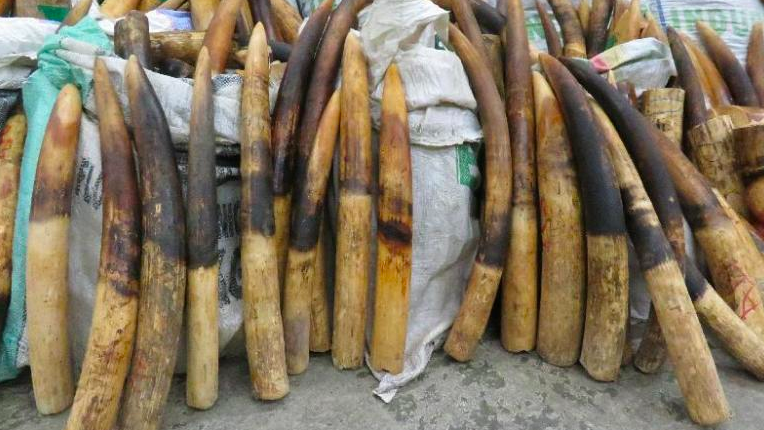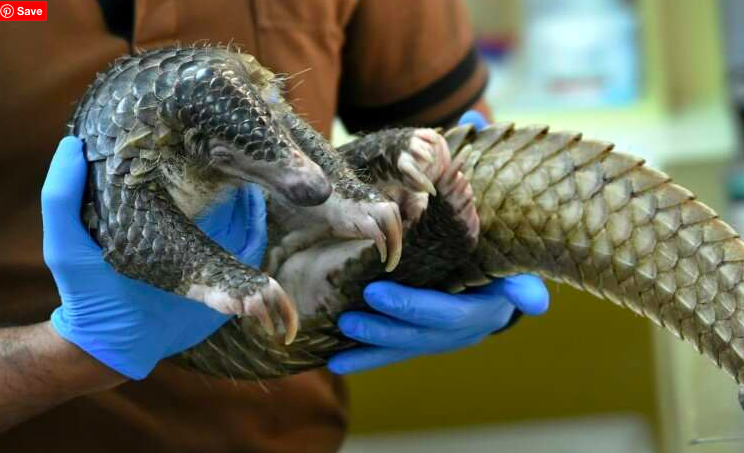
Tusks Seized in Hong Kong Raid. Photo: Hong Kong Customs
CNN reported last Friday that Hong Kong customs agents had taken into custody $8 million dollars worth of smuggled endangered species parts, including the largest single cache of pangolin scales. This was one of the largest wildlife trafficking busts ever in Hong Kong, a gateway for smugglers to bring illegal good into China. In a raid, authorities seized 8,300 kilograms (18,300 pounds) of suspected pangolin scales and 2,100 kilograms (4,600 pounds) of suspected ivory tusks from a 40-foot container ship that was supposed to be transporting frozen beef from Nigeria.
- There are 400 stores with licenses to sell ivory materials that are dated from before 1989, and thus pre-dating the international agreement (called CITES) banning the sale of endangered species.
- Many argue that these “legal” sellers who are able to continue to trade provide cover for illegal sales because there is no way to distinguish more recent ivory from older ivory — smugglers can mix older and more recent illicit ivory and evade detection.
In 2018, China banned ivory trade on its mainland after much international pressure to take action to save elephants who are nearing extinction. China is the world’s largest market for ivory and for pangolin scales. Pangolins’ scales are thought to have medicinal powers.
Ugandan officials also made one of their largest busts ever in their battle against illegal wildlife trade, seizing more than three tons of elephant tusks and nearly a half-ton of pangolin scales in a container coming in from South Sudan.
- The total value of the seized materials was estimated at approximately $3.5 million.
- The 700 elephant tusks and hundreds of pangolin scales had been hidden inside giant blocks of timber.
- Officials believe the ivory and pangolin scales originated in the Democratic Republic of Congo (DRC).
Why This Matters: Illegal wildlife trafficking is third only to drugs and guns in Africa. Huge shipments originate in the Democratic Republic of Congo or the Central African Republic because of the lawlessness there, as we reported a couple of weeks ago following the recent election in the DRC. And smuggling these items through Uganda is easy. Poaching has caused the elephant population in Africa to fall by 110,000 animals over the past decade, and now only a few hundred thousand remain in the wild. The pangolin are believed to be the most trafficked animal in the world and are also at risk of extinction.

Pangolins are traded illegally for their scales and meat. Photo: Phys.org
February 8, 2019 » China, Democratic Republic of Congo, elephant, endangered species, ivory, pangolin, Sudan, wildlife trafficking


